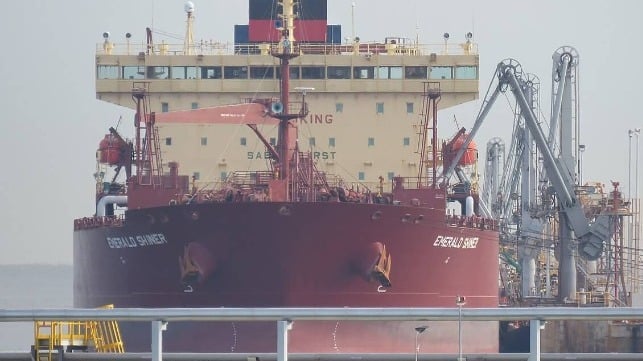Western Insurers, Class Societies Cut Off Russian Oil Carrier Gatik

Gatik Ship Management has emerged as one of the leading players in the Russian oil shipping market, specializing in moving quasi-sanctioned Russian crude to refineries in India. The company has become one of the larger dirty tanker operators in the span of a single year through the acquisition of tonnage on the secondhand market, primarily older vessels. Though its $1.6 billion worth of tanker tonnage would be a solid book of business to add for any marine service provider, its potential sanctions risk exposure are driving off big Western names, and it is increasingly substituting Indian services instead.
Last week, Reuters reported that Lloyds Register would be dropping class certification for 21 ships, roughly one third of Gatik's 58-ship fleet. The London-based class society indicated that it had reason to believe that Gatik was not adhering to certain sanctions measures.
“Where supported by evidence, we withdraw class and services from any vessels found by the relevant authorities to be breaching international sanctions," said LR in a statement to Reuters.
ABS is also withdrawing class for another 13 ships, Reuters reported Tuesday. "As a U.S. company, ABS strictly follows both the letter and the spirit of U.S. and other applicable sanctions. We are arranging the transfer out of class of all vessels formerly managed by Gatik," an ABS spokesperson told the wire service.
The latest withdrawals add to a growing wave. U.S.-based insurer American Club has already confirmed that it is no longer providing cover for Gatik's fleet. The UK-based St. Kitts & Nevis registry has de-flagged 36 Gatik ships, forcing them to search for alternative flag services.
In the place of these Western service providers, others are stepping in. IRClass is taking on classification for some of the Gatik fleet. Less prominent flag registries like Mongolia and Gabon are gaining Gatik's business.
Gatik's primary business is in moving India's purchases of discounted Russian crude oil. Russian oil now makes up about 30 percent of India's imports, with two refiners - Reliance and Nayara - taking up about half of the volume.

that matters most
Get the latest maritime news delivered to your inbox daily.
Nayara is half-owned by sanctioned Russian oil major Rosneft, and its refinery runs primarily on Russian oil, much of it sourced from Rosneft. The FT has uncovered circumstantial links between Gatik Shipping and Rosneft, which is also Gatik's most important client. Many traders suspect that Rosneft may have had a hand in building up the Indian tanker owner to move its own oil, according to FT. In one curious clue, the name of the favorite band of Rosneft CEO Igor Sechin appears twice in Gatik's operations - first in the name of an associated shipmanagement firm, and again in the name of a holding company and a ship.
In addition to any sanctions exposure that could derive from dealing with a Rosneft-backed front company, Western insurers and class societies have to be mindful of the price paid for the oil shipment. To comply with G7 sanctions measures on transporting Russian oil, Western shipping service providers must hold sales documents that attest that the crude was sold for less than $60 per barrel. However, reported pricing may not actually match the true price paid, according to BNE: Russian oil company Gazprom Neft reported record-setting profits in 2022, and Lukoil had a banner year as well - even though the Russian government reported that oil and gas revenue fell by half. Some analysts suspect that Russia's oil exporters are seeing so much financial success because the true price paid is higher than the price reported for compliance purposes.
